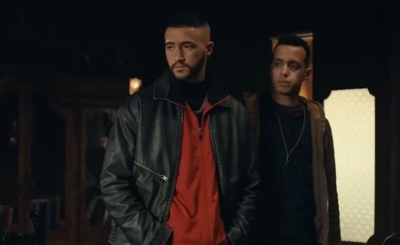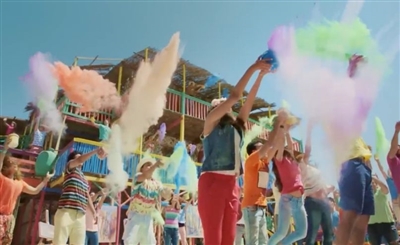Tayar’s Debut Album ‘Kol Shi Sar’ Tells Stories of a Wounded Region
The Jordanian duo’s album forms a medley of mellow tunes and emotional lyrics that communicate the pain of the Arab existence.
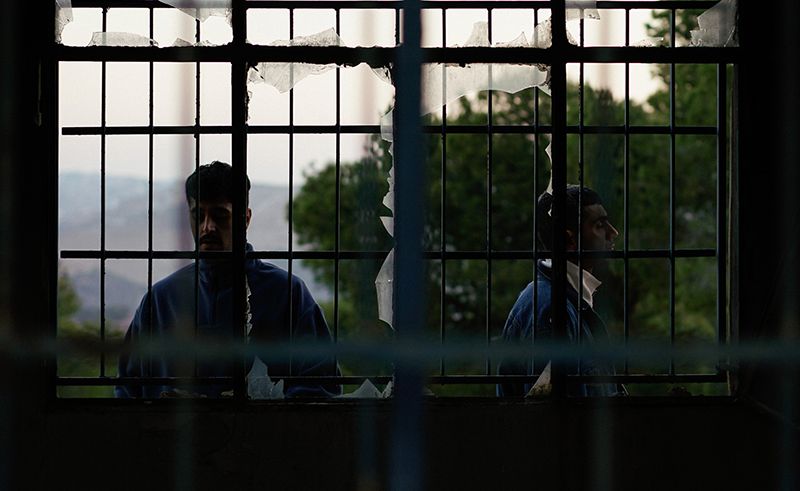
Last June, in Alexandria’s Jesuit Cultural Centre, I saw Jordanian duo Tayar play live, having never heard of them at the time. I was there to listen to the second show, Jordanian musician Zaid Kreshan, but I became so intrigued by one of the tracks Tayar played that I simply had to pull out my phone and record it so I could find it when I got home. I meticulously went through their work on Spotify, falling in love with a handful of their tracks in the process - and when I couldn’t find the song, I reached out to the band in a desperate plea for help.
I sent them the video, not really expecting a response, but they replied telling me that was an unreleased song that will soon be out on music platforms. Months passed, during which I paid special attention to my Spotify notifications and consistently checked Tayar’s profile for announcements of the song, to no avail. I was beginning to give up when, at long last, Tayar notifications started showing up.
The song in question was ‘Kol Shi Sar’, which is only one song off the duo’s album of the same name. An entire album when I only asked for a song seemed to me like a gift from the universe. I dived in, listening to, of course, ‘Kol Shi Sar’ first (apologies to all strictly chronological album listeners reading).
-ba9f895a-59cb-4f07-9731-fb36a315b024.png) The song on the album veered slightly away from what I had envisioned for it. In the live version, the song was, naturally, more rough. It placed more emphasis on the oud that played each time the chorus was repeated. It felt more natural, more tangible. The final version of ‘Kol Shi Sar’ seemed more intricately orchestrated, which indeed is indicative of the amount of work and thought Tayar put into perfecting the song, but is, in my opinion, not necessarily what the song needed.
The song on the album veered slightly away from what I had envisioned for it. In the live version, the song was, naturally, more rough. It placed more emphasis on the oud that played each time the chorus was repeated. It felt more natural, more tangible. The final version of ‘Kol Shi Sar’ seemed more intricately orchestrated, which indeed is indicative of the amount of work and thought Tayar put into perfecting the song, but is, in my opinion, not necessarily what the song needed.
The lyrics of ‘Kol Shi Sar’ hold apocalyptic messages of what life feels like after the loss of love, particularly in the event of the death of the writer’s parents in the war. The chorus goes like this:
‘Everything that happened was revealed
Without dying and screaming
Without blood and fire
Everything was revealed
And everything that happened was revealed
Without dying and screaming
Without blood and fire
Everything was revealed’
These lyrics reveal the vulnerable humanity in the process of grief whilst trying to evade the violence. It’s a very human experience, and the rawness of the song when performed live simply communicated that, genuinely. The rough chords encapsulated this pain. When produced on the album, the song lost a bit of its edge, it was smoothened out; a distance between the lived and sonic experiences was created.
“Rooted in a profoundly personal experience, this song draws inspiration from the writer's experience teaching a class in Irbid,” Tayar tells SceneNoise. “During this time, a child recounted a harrowing tale of witnessing his parents' tragic demise at the hands of mercenary soldiers in northern Syria. The writer, in a quest for truth, sought confirmation from the child's aunt, who validated the haunting details, revealing that one of the assailants was, shockingly, the child's own uncle.”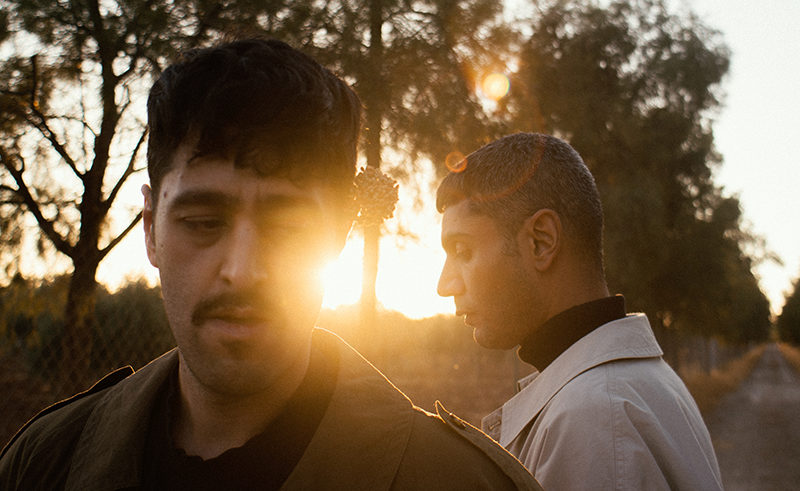 While I thought that the organic nature of the song added value to it, Tayar saw it differently. “Well, this is a gloomy and melodramatic song, we felt that the sound of a guitar would take away from that dramatic feel,” the duo tells us. “So we decide to rely solely on the synths and sound design to build a musical atmosphere that serves the album title song justice.”
While I thought that the organic nature of the song added value to it, Tayar saw it differently. “Well, this is a gloomy and melodramatic song, we felt that the sound of a guitar would take away from that dramatic feel,” the duo tells us. “So we decide to rely solely on the synths and sound design to build a musical atmosphere that serves the album title song justice.”
Generally, the album relies on jazz inspirations and the flexibility of only being a musical duo, rather than a band, to create the illusion of a theatre across a few songs. “Similar to how a football team's formation influences its gameplay and strategy, a band of two without a drummer and bassist can explore various music styles. For example, not having a drummer with a fixed style allows for more flexibility during recording.”
The instrumental tracks scattered throughout the album are not there by force of coincidence; the narrative quality of ‘Kol Shi Sar’, one which makes it into more of a theatrical performance than a collection of songs, necessitates these “breaks”. In singer/songwriter Ahmed Farah’s words, instrumental tracks play a role of “dividing it into acts reminiscent of that of a play - ‘act one, act two, act three’.” At the same time, these tracks set the album apart. “In a music industry focused on instant hits,” music producer and filmmaker Bader Helalat explains, “we intricately weaved ‘Kol Shi Sar’ into a cohesive whole that continually seeks out distant horizons and possibilities."
While it draws on jazz inspirations, like Chet Baker and Gerry Mulligan’s sounds, and is largely based on political themes, the album does not adhere to one specific genre. Rather, the tracks form a synergy between the story being told through the lyrics and the sound that accompanies it. “Just as it takes two to tango, the sound and instrumentation of every musical instrument elevate the lyrical meaning to a whole new level,” Helalat tells us. “For instance, 'El Haram,' the prelude to 'El Ain,' sets a sinister atmosphere for a psychedelic song filled with mysteries and serial questioning."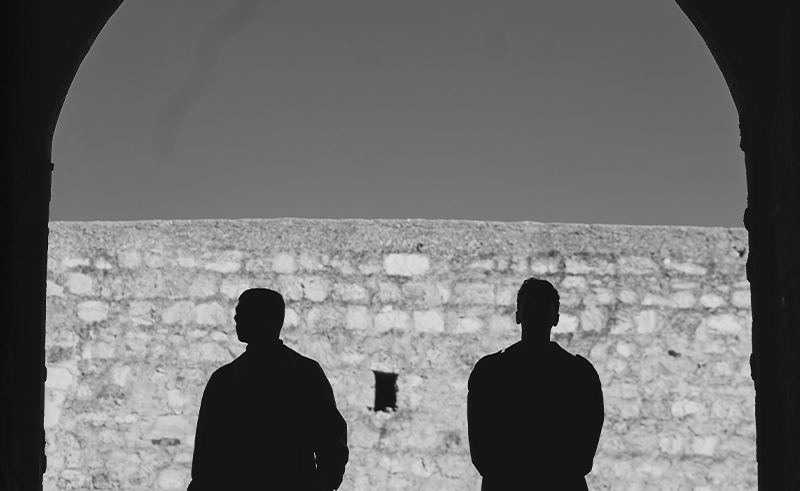 Regardless, it’s only true to admit that ‘Kol Shi Sar’ generally exists within a mellow soundscape, with some tracks escaping that norm to be more upbeat and emotionally expressive, like ‘Ramani’.
Regardless, it’s only true to admit that ‘Kol Shi Sar’ generally exists within a mellow soundscape, with some tracks escaping that norm to be more upbeat and emotionally expressive, like ‘Ramani’.
Originating just 1.5 hours before a live concert, the lyrics emerged from a poignant moment spurred by the unexpected sight of the Palestinian flag in a foreign country. This occurrence struck a surreal chord, feeling like a defining moment that set the tone for the song's inception.
‘I have heard your promises and words
there is nothing new
Imprisoned and sentenced
by fire and iron’”
The song is one of the two on which Tayar collaborated with Palestinian musician Haya Zaatry. The collaboration is considerably the most suitable it could be, given the album’s notedly necessary emphasis on the politics of the region. In the process, their music, albeit mostly based on specific events, ends up being more generalisable to what has become a war-tainted Arab identity.
When asked about whether some lyrics alluded to the ongoing genocide in Palestine, specifically Gaza, Farah tells us, “RML was written on July 1st, 2022. Unfortunately, due to the instability of our region, our lyrics and music often take on a Nostradamus-like quality, predicting potential future events. Living in this region, every artist is inevitably influenced by the heavy atmosphere that hangs over us like a black cloud."
“Haya Zaatary is someone we met at a festival in the UAE,” Farah continues. “From the moment we met, there was a wonderful energy and chemistry between us. At that festival, we wrote 'Sarab' and 'Ramani'. Initially, we only needed her to record 'Sarab', but when she mentioned she was coming to Jordan for the recording, we couldn't resist asking her about 'Ramani' as well. She loved 'RML', so she decided to sing backing vocals with us. Jamel Matar, the drummer for Haya Zaatary's band, accompanied her and played on both 'Ramani' and 'RML'. Jamel is an incredible Palestinian jazz drummer."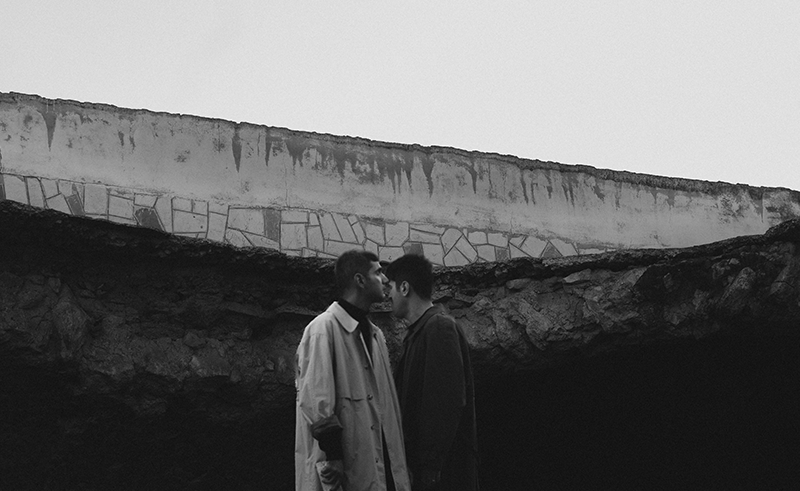 Learning about the collaborations behind some of the tracks makes them all the more endearing. It is a steadfast reminder that there is unity in the region; we share a pain and this pain brings us together, in this case, artistically.
Learning about the collaborations behind some of the tracks makes them all the more endearing. It is a steadfast reminder that there is unity in the region; we share a pain and this pain brings us together, in this case, artistically.
Our existence within such a tight knit community does not always come to serve us, though, Tayar clarifies on another track. One must find their own definition of freedom, their own terms for it. The search for freedom is a solitary pursuit, and it is one that we are forever chasing. “‘Sarab’ captures the profound struggle we all face in our pursuit of liberation from the depths of darkness and ignorance toward the illuminating path of knowledge. It symbolises the spiritual and psychological voyage of self-discovery, as we confront both internal and external forces that try to confine us and hinder our quest for truth and enlightenment.”
Perhaps what is most fascinating about ‘Kol Shi Sar’ is learning about the process of how it came to be. As Ahmad Farah explains, "Typically, I start by writing the lyrics and basic structure of a song on acoustic guitar. From there, the concept evolves through a collaborative back-and-forth process."
"We prefer working independently initially, finding inspiration in isolation,” Bader Helalat elaborates. “I interpret Ahmad's ideas with various instruments, exchanging feedback until we're both happy." Through this process, Tayar expresses themselves as a duo unbound by the traditional instructions of music production, and they revel in their freedom to create their unique sound.
- Previous Article Benghazi Summer Festival Returns for the First Time in 15 Years
- Next Article XP News: MENA Artists' Iconic Performances on ColorsXStudio
Trending This Month
-
Jan 29, 2026
-
Feb 20, 2026




